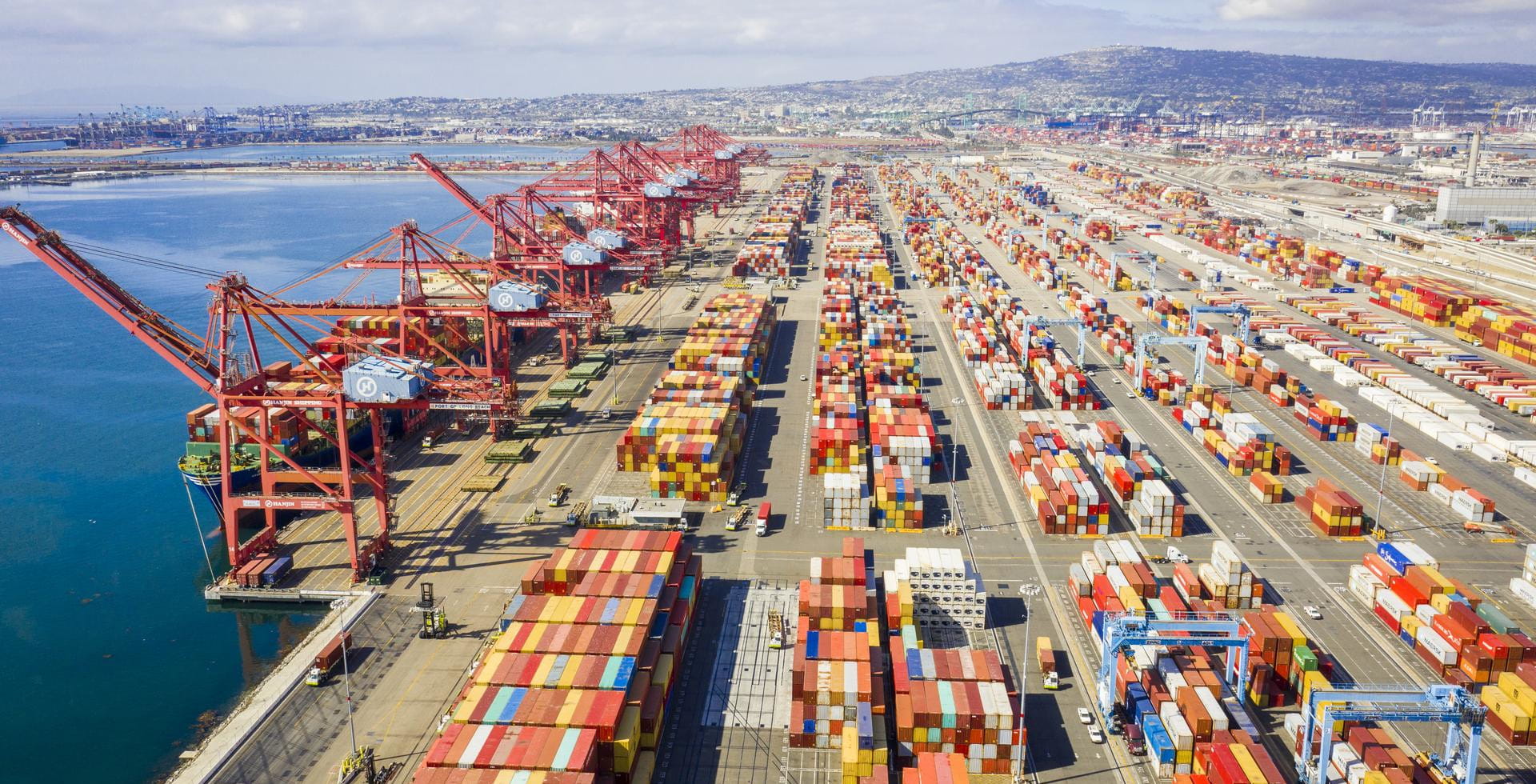Global trade is changing… what does it mean for trade finance investors?

Global trade has been in the spotlight since the Covid crisis. Lockdowns, supply chain bottlenecks, and geopolitics have upended the status ante, and observers now speculate about a paradigm shift away from the liberalised, globally integrated, rules-based trading system to one de-facto dominated by power politics and regionalisation.
Against this backdrop, one can easily be mistaken for inferring that global trade finance activity will also suffer from the many challenges reshaping global trade.
In fact, various indicators tell a different story about what’s happening with global trade finance.
At a macro level, current WTO forecasts[1] suggest the ratio of global trade to GDP growth will largely maintain the 1:1 relationship held since declining from the 2:1 trend prior to the Global Financial Crisis.
Industry surveys point to growing trade finance activity, with the World Supply Chain Finance (SCF) Report[2] survey reporting a 38% increase in SCF volumes in 2021, a growth rate broadly similar to the prior year.
Similarly, Factors Chain International (FCI)[3] reports a 12.6% increase in the more established market for receivable finance over the course of 2021.
More telling, the ADB reports[4] a widening of the mismatch between supply and demand of trade finance, with the global Trade Finance gap growing to $1.7 trillion over the course of 2020.
These indicators all point to a growing demand for trade finance despite the change and uncertainty.
Across industries, a higher level of working capital is required to operate in today’s environment, which helps explain why trade finance is growing.
Broad based inflation has increased input costs and the capital required to purchase and carry inventory.
The bottlenecks in global shipping and warehousing are extending the cash conversion cycle for companies.
Demand patterns and access to supply are more volatile, and companies increasingly carry more inventory to ensure continuity and growth of sales.
What does this mean for trade finance investors?
The corollary to the new drivers shaping global trade is the increased working capital to sustain it. This is accelerating the need for alternative sources of working capital to augment traditional bank financing, already underway in response to increased bank capital reserves.
For private market investors it offers the opportunity to access an asset class well suited to today’s conditions[5], while also helping to fuel the engine of the real economy.
1 https://www.wto.org/english/news_e/pres22_e/pr902_e.pdf
2 https://bcrpub.com/world-supply-chain-finance-report-2022
3 https://fci.nl/en/news/press-release-fci-world-factoring-statistics-reports-largest-double-digit-increase-volume-over
4 https://www.adb.org/news/global-trade-finance-gap-widened-17-trillion-2020
5 https://uk.allianzgi.com/en-gb/institutional/our-strategies/trade-finance/trade-finance-a-resilient-asset-class-for-any-market-environment
AllianzGI designs Trade finance investments for professional investors only and may be illiquid in nature.
Investing involves risk. The value of an investment and the income from it may fall as well as rise and investors might not get back the full amount invested. Past performance does not predict future returns. If the currency in which the past performance is displayed differs from the currency of the country in which the investor resides, then the investor should be aware that due to the exchange rate fluctuations the performance shown may be higher or lower if converted into the investor’s local currency. The views and opinions expressed herein, which are subject to change without notice, are those of the issuer companies at the time of publication. The data used is derived from various sources and assumed to be correct and reliable at the time of publication. The conditions of any underlying offer or contract that may have been, or will be, made or concluded, shall prevail. The Summary of Investor Rights is available in English, French, German, Italian and Spanish at https://regulatory.allianzgi.com/en/investors-rights. The duplication, publication, or transmission of the contents, irrespective of the form, is not permitted, except for the case of explicit permission by Allianz Global Investors GmbH.
For Investors in Europe (ex.Switzerland)
This is a marketing communication issued by Allianz Global Investors GmbH, www.allianzgi.com, an investment company with limited liability, incorporated in Germany, with its registered office at Bockenheimer Landstrasse 42-44, 60323 Frankfurt/M, registered with the local court Frankfurt/M under HRB 9340, authorised by Bundesanstalt für Finanzdienstleistungsaufsicht (www.bafin.de). Allianz Global Investors GmbH has established branches in the United Kingdom, France, Italy, Spain, Luxembourg, Sweden, Belgium and the Netherlands. Contact details and information on the local regulation are available here (www.allianzgi.com/Info).
For investors in Switzerland
This is a marketing communication issued by Allianz Global Investors (Schweiz) AG, a 100% subsidiary of Allianz Global Investors GmbH.
2247437

